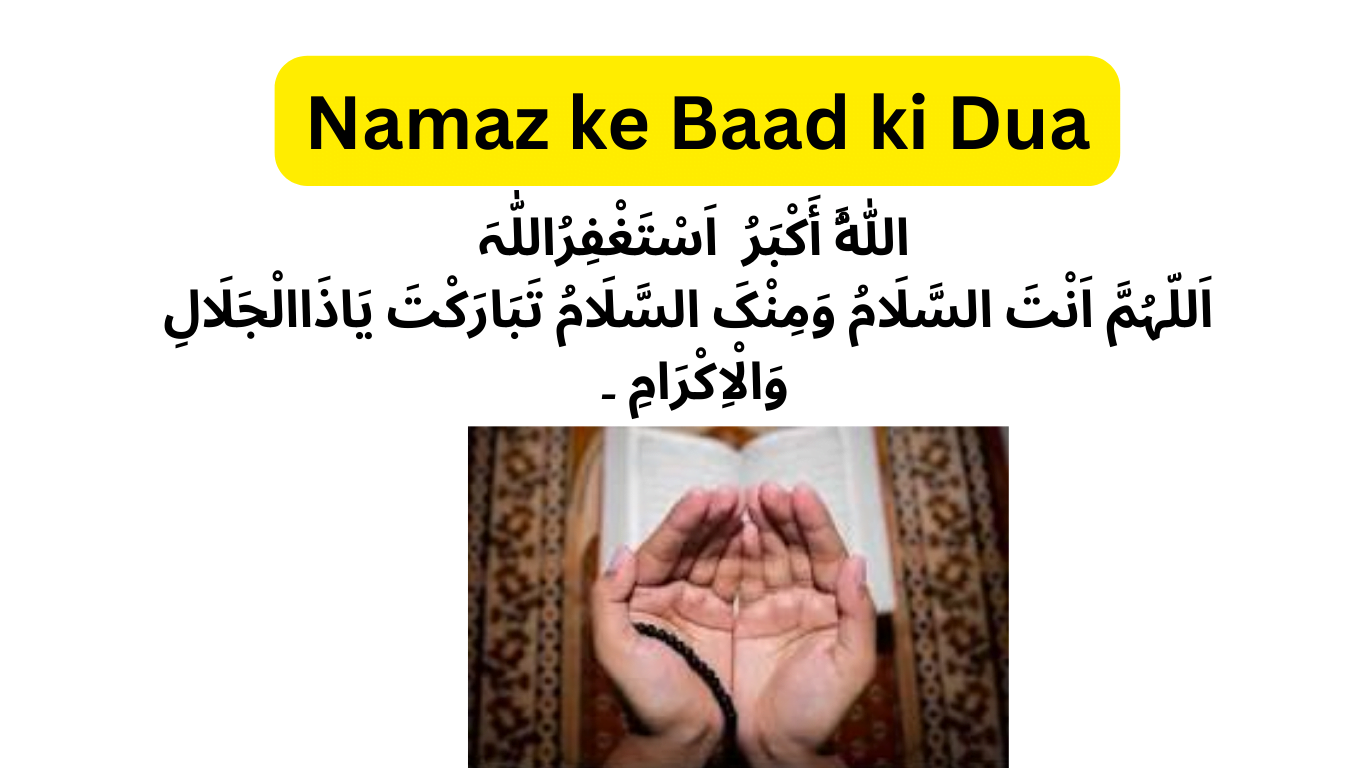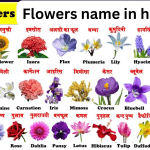In the hustle and bustle of our daily lives, finding moments of peace and connection with the divine is crucial. For Muslims, one such sacred practice is making supplications after performing Namaz. In this article, we’ll delve into the profound concept of “Namaz ke Baad ki Dua” – the prayers offered after the completion of the Islamic ritual.
Introduction
Namaz, or Salat, is a cornerstone of Islamic worship, providing a direct channel of communication with Allah. Beyond the physical aspects of the prayer, the spiritual journey continues with the practice of making Dua post-Namaz.
Namaz ke baad padhne ki dua in arabic
اللَّهُ أَكْبَرُ ,اللَّهُ أَكْبَرُ,استغفر اللہ ، استغفر اللہ، استغفر اللہ
ALLAHU AKBAR, ALLAHU AKBAR ,Astaghfirullah,Astaghfirullah,Astaghfirullah
اللَّهُمَّ أَنْتَ السَّلاَمُ وَمِنْكَ السَّلاَمُ تَبَارَكْتَ يَا ذَا الْجَلاَلِ وَالإِكْرَامِ
Allahumma Antas-Salam wa minkas-salam. Tabarakta Ya Dhal-jalali wal-ikram.
Sahih Muslim, 1334
Namaz Ke Baad Ki Dua in English
O Allah, You are Peace and from You comes peace . Blessed are You , O Owner of majesty and honor.
Namaz ke Baad ki Dua In Hindi
हे अल्लाह, तू शांति है और तुझ से शांति आती है। हे महिमा और सम्मान के स्वामी, आप धन्य हैं।
Namaz ke Baad ki Dua In Bangla:
আল্লাহু আকবর, আল্লাহু আকবর, আস্তাগফিরুল্লাহ, আস্তাগফিরুল্লাহ, আস্তাগফিরুল্লাহ
আল্লাহুম্মা আনতাস-সালাম ওয়া মিনকাস-সালাম। তাবারকতা ইয়া ঢাল-জালালি ওয়াল-ইকরাম।
সহীহ মুসলিম, 1334
Namaz ke Baad ki Dua In urdu:
اے خدا، تو سلامتی والا ہے اور تیری طرف سے سلامتی ہے، تو بڑی شان اور عزت والا ہے۔
Check Out:
Benefits of Reading Dua After Farz Namaz (Farz Namaz K Baad Ki Dua)
Dua, an Arabic term signifying the act of summoning or calling out, is synonymous with prayer, supplication, or invocation. Its significance in Islam is profound, as Prophet Muhammad (Peace Be Upon Him) emphasized in a hadith that dua represents the essence of worship. Genuinely praying to Allah strengthens one’s faith, and the Dua After Farz Namaz (Supplication After Obligatory Prayer) holds particular merit.
Regarded as one of the most potent and impactful forms of worship, dua fosters a sense of connection with Allah irrespective of location or time. Muslims routinely invoke Allah throughout the day and night, aligning with the Quranic encouragement to turn to Him with uncertainties, hopes, dreams, and fears. Beyond fostering closeness to Allah, dua elevates faith, providing solace and hope to believers.
Islam encompasses specific supplications (duas) for various aspects of life, as imparted by Prophet Muhammad (Peace Be Upon Him). These include safety, family, food, travel, sickness, dressing, and more. Notably, the Dua After Farz Namaz (Supplication After Obligatory Prayer) holds a pivotal role among these supplications.
As followers of Islam, it is incumbent upon us to commit these duas to memory, including the Dua After Farz Namaz, for their protective and transformative effects. Doing so not only safeguards us from harm but also invites abundant blessings into our lives. Feel free to read and share this dua with friends and family, and explore additional supplications on their respective pages.
Understanding the Concept
Dua, in Islam, is more than a mere request; it is a heartfelt conversation with the Almighty. It is an expression of dependence, gratitude, and a means of seeking guidance and blessings.
The Significance of Post-Prayer Supplications
The act of making Dua after Namaz holds immense significance. It is a moment when believers can connect intimately with Allah, seeking His mercy, forgiveness, and divine intervention in their lives.
Commonly Recited Dua after Namaz
Several supplications are commonly recited after the five daily prayers. These include requests for guidance, protection, and gratitude for the opportunity to worship.
Personal Connection with Dua
Making Dua is a deeply personal experience. It allows individuals to express their joys, sorrows, and concerns directly to Allah, fostering a profound connection.
Verses from the Quran on Supplications
The Quran contains verses that emphasize the importance of making Dua. These verses guide believers on the power and efficacy of sincere supplications.
Tips for a Meaningful Dua
Crafting a meaningful Dua involves sincerity and focus. Tips for enhancing the quality of supplications include choosing specific requests and approaching the practice with humility.
Perplexity in Dua
Perplexity in Dua refers to the depth of emotion and sincerity in expressing one’s innermost thoughts and feelings. It is a key element in making supplications meaningful and genuine.
Burstiness in Dua
Burstiness reflects the varied emotions expressed during Dua. From moments of intense need to overwhelming gratitude, burstiness adds depth to the supplication experience.
Balancing Specificity and Context
Finding the balance between specificity and context in Dua is a delicate task. While specificity adds precision, context ensures the relevance of the supplication to the broader aspects of life.
Conversational Style in Dua
Approaching Dua with a conversational style, using personal pronouns, and speaking from the heart transforms the ritual into a genuine dialogue with the Creator.
The Active Voice in Supplications
Utilizing the active voice in Dua enhances its impact. Instead of passive requests, an active voice conveys urgency, sincerity, and a strong desire for Allah’s intervention.
Keeping it Brief and Engaging
Crafting concise yet powerful supplications ensures that the essence of the message is not lost. Keeping it brief maintains the reader’s engagement while conveying the depth of emotions.
Analogies and Metaphors in Dua
Analogies and metaphors add richness to supplications. Comparing personal experiences to known concepts enhances the emotional resonance of post-prayer Dua.
Conclusion
In conclusion, “Namaz ke Baad ki Dua” is more than a ritual; it is a profound and personal connection with Allah. Embracing the practice of making meaningful supplications after Namaz enriches the spiritual journey, providing solace, guidance, and a sense of divine presence.
Frequently Asked Questions (FAQs)
Q: How long should my post-Namaz Dua be?
A: The length of your Dua doesn’t matter as much as the sincerity and depth of your connection with Allah. It can be brief or extensive, depending on your emotions and needs.
Q: Can I make Dua in any language, or does it have to be in Arabic?
A: While Arabic is recommended for certain prayers, including specific verses, you can make Dua in your native language. Allah understands all languages.
Q: Is it essential to memorize the supplications, or can I speak from my heart?
A: While memorizing supplications is beneficial, speaking from your heart is equally important. Sincere expressions of your thoughts and feelings matter most.
Q: How often should I make Dua after Namaz?
A: There is no set frequency. You can make Dua after every prayer or whenever you feel the need to connect with Allah. It’s a personal and heartfelt practice.
Q: Can I make Dua for others during my post-Namaz supplications?
A: Absolutely. Making Dua for others is a beautiful way to show compassion and solidarity. It reflects the interconnectedness of the Muslim community.










